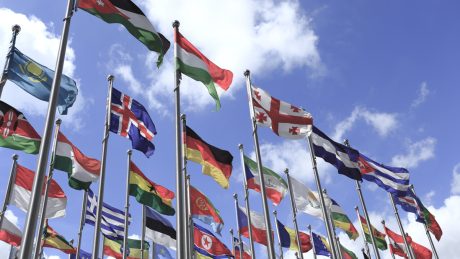To paraphrase Winston Churchill, a client’s success in proceedings is sometimes really only the “end of the beginning” rather than the “beginning of the end”. Enforcement of a finding in the client’s favour can sometimes take longer, and cost more, than the liability proceedings themselves. This note considers the importance of the New York Convention of 1958, and its extensive territorial coverage, to the conduct of a successful enforcement proceeding after arbitration, and contrasts it with the position in relation to court judgments.
Enforcement: an early priority for clients
One of the first and most important tasks we consider with a client in a new dispute matter if they are claiming or counter-claiming is whether they will be able to recover in the event of success. As so much of our work involves cross-border matters, that inevitably requires us to look at the available options for enforcement in the home jurisdiction of the other party (or in jurisdictions where they may have assets). This includes, in particular, considerations of whether judgment given will be recognised and enforced in any other relevant jurisdiction.
Enforcement of court judgments in other jurisdictions
Following court litigation in England and Wales, enforcement of judgments in other jurisdictions takes place under a network of treaty-based undertakings giving rise to mutual enforcement of judgments between the contracting states to those treaties.
During the UK’s membership of the European Union, judgments delivered in UK courts were recognised and enforced in other EU jurisdictions by operation of the Brussels Convention (and later the Brussels Regulation). The UK is now taking steps to become a contracting party to the Lugano Convention, which extends the mutual recognition and enforcement provisions to other non-EU member states (though the other states are, at present, members of the EEA and, therefore, of the European Single Market). That application may not be determined until the end of this year or early in 2021, and this may give rise to uncertainty as to the status of UK judgments in Europe beyond the end of this year.
Outside the European Union, the UK is a party to other bilateral arrangements for mutual recognition and enforcement of judgments. However, these are far from comprehensive in terms of geographic coverage. And in some cases, (the US, for example) they are limited to recognition of money judgments only and not judgments for other types of relief.
In the absence of an applicable treaty, the alternative is for the UK judgment to be deployed as evidence of entitlement to recover the same relief in fresh proceedings in the other party’s state of domicile. The need for those proceedings to be run afresh inevitably leads to further expenditure of legal costs and time for the judgment creditor. There is also the risk that redress may be delayed by many months if not years of further proceedings in a different forum.
Enforcement of arbitration awards in other jurisdictions
By contrast, one of the key advantages of arbitration is the availability of enforcement mechanisms worldwide under a common set of rules provided by the New York Convention on the Recognition and Enforcement of Foreign Arbitral Awards (the “NYC”). Dating from 1958, the NYC is a remarkable example of a multilateral instrument which has continued to attract new signatories. This month, two further nations joined the roster of ‘Contracting States’ for whom the NYC is in force: the Seychelles and Palau, which became the 163rd country to accede to the NYC. Only 34 member states of the United Nations are not Contracting States to the NYC.
In broad terms, the provisions of the NYC serve two purposes. First, to allow courts in any Contracting State to refer to arbitration any dispute that is subject to the provisions of a valid agreement to arbitrate. Second, to recognise and enforce an award made in a Contracting State in any other Contracting State as though it was a domestic judgment. There are a limited number of bases on which recognition and enforcement may be refused, and the vast majority of these are subject to the discretion of the enforcing court. Therefore, in principle at least, a valid arbitration award should be able to be recognised and enforced in a streamlined way in any Contracting State where the award debtor has assets. The underlying subject matter of the case and the decisions made by the tribunal should not be re-opened through this process.
Inevitably, the course of enforcement does not always run smoothly. There are jurisdictions that are notoriously adverse to the enforcement of foreign awards (particularly against states or state-owned entities). Also, the courts of some states make wide rather than narrow use of the grounds on which enforcement may be refused (frequently on the basis that the award offends the public policy of the state of enforcement). And in some instances, parties will seek to use the opportunity to contest enforcement as a means of re-litigating the dispute.
However, as the NYC reaches 163 signatories, its longevity, stability and (relative) predictability provide some comfort for clients that they can get from victory to redress with an almost-universal set of principles in their favour. The process means that they do not have to start all over again to plead and prove their claim in order to execute the judgment.
Covid-19 and arbitration as a short-cut?
Although some domestic courts (including the English courts) were quick to move to virtual hearings during the Covid-19 crisis to keep the wheels of the administration of justice turning, a bottleneck is anticipated. In jurisdictions where the courts are closed, delay is an additional problem for businesses which already need help to provide certainty as to cash flow, liabilities and losses.
Some former senior English judges, including Lords Neuberger and Phillips, are encouraging parties to consider moving their disputes into alternative forms of dispute resolution (including arbitration) to avoid the delays occasioned by the backlog of court business deferred by Covid-19-related problems. The added benefit offered by the NYC should be taken into account as a factor supporting the effectiveness of arbitration as a process generating a binding award with a proven mechanism to achieve effective recoveries.
You can find further information regarding our expertise, experience and team on our International Arbitration and Enforcement page.
If you require assistance from our team, please contact us or alternatively request a call back from one of our lawyers by submitting this form.
Subscribe – In order to receive our news straight to your inbox, subscribe here. Our newsletters are sent no more than once a month.





